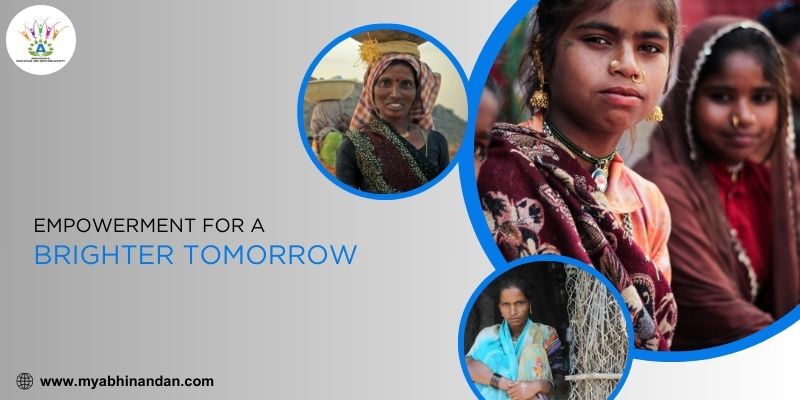Importance of Women’s Empowerment Policy in India

Importance of Women’s Empowerment Policy in India

Indian women play a vital role in shaping the nation’s tapestry. However, for far too long, many women have faced barriers that hinder their progress and limit their potential. Recognizing the importance of empowering women, India has implemented various policies aimed at fostering their growth and inclusion in all spheres of life. In this blog, we delve into the significance of Women’s Empowerment Policy in India and how they contribute to the nation’s development.
Breaking Barriers: Access to Education
In India, women’s empowerment policies prioritize ensuring equal access to education for girls. By investing in girls’ education, these policies not only promote literacy but also equip women with the knowledge and skills necessary to pursue their dreams and contribute meaningfully to society. When women are educated, they are better equipped to make informed decisions about their lives, health, and careers, ultimately breaking the cycle of poverty and igniting a ripple effect of positive change in their communities.
Economic Empowerment: Bridging the Gender Gap
Empowering women economically is crucial for the overall development of India. Women’s empowerment policies focus on creating opportunities for women to participate in the workforce, whether through entrepreneurship, skill development programs, or employment quotas. By bridging the gender gap in economic participation, these policies not only enhance women’s financial independence but also contribute to the nation’s economic growth. When women have access to equal economic opportunities, they can uplift themselves and their families, thereby creating a more inclusive and prosperous society.
Political Representation: Amplifying Women’s Voices
Political empowerment is vital for ensuring that women’s voices are heard and their interests are represented in decision-making processes. Women’s empowerment policies in India advocate for greater participation of women in politics through measures such as reservations in local bodies and legislative assemblies. By increasing women’s political representation, these policies not only address gender disparities but also bring diverse perspectives to the forefront, leading to more inclusive and effective governance. When women participate in politics, they become agents of change, advocating for policies that benefit not only themselves but also the larger community.
Health and Well-being: Ensuring Women’s Rights
Ensuring women’s health and well-being is fundamental to their empowerment. Women’s empowerment policies in India prioritize access to healthcare services, reproductive rights, and nutrition programs. By addressing gender-specific health issues and promoting women’s reproductive rights, these policies empower women to take control of their bodies and make informed decisions about their health. When women are healthy and well-nourished, they can fully participate in society, pursue their aspirations, and contribute to the nation’s progress.
Changing Mindsets: Challenging Stereotypes and Discrimination
Women’s empowerment policies not only focus on addressing systemic barriers but also challenge societal norms and attitudes that perpetuate gender inequality. By promoting gender sensitization programs and campaigns, these policies aim to change mindsets and foster a culture of respect and equality. When society values and respects women as equals, it creates an enabling environment where women can thrive and realize their full potential.
Conclusion
Women’s empowerment is not just a moral imperative; it is essential for the holistic development of India. Through targeted policies and initiatives, India is striving to create a more inclusive and equitable society where women are empowered to lead fulfilling lives and contribute meaningfully to the nation’s progress. However, achieving gender equality requires collective efforts from all stakeholders – government, civil society, and individuals. By continuing to champion women’s rights and empowerment, India can unleash the untapped potential of its women and pave the way for a brighter and more prosperous future for all.
Tags: healthcare services, policy on women empowerment, skill development for women, women empowerment, women rights and empowerment